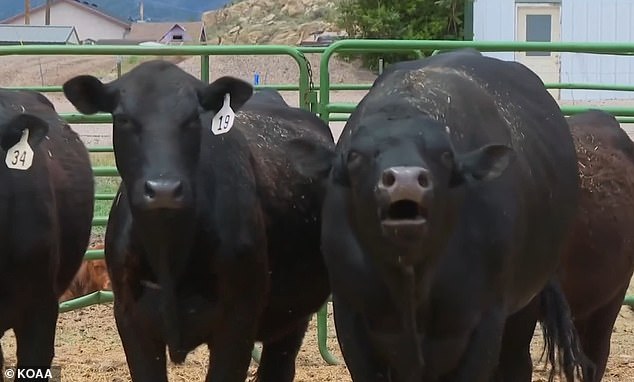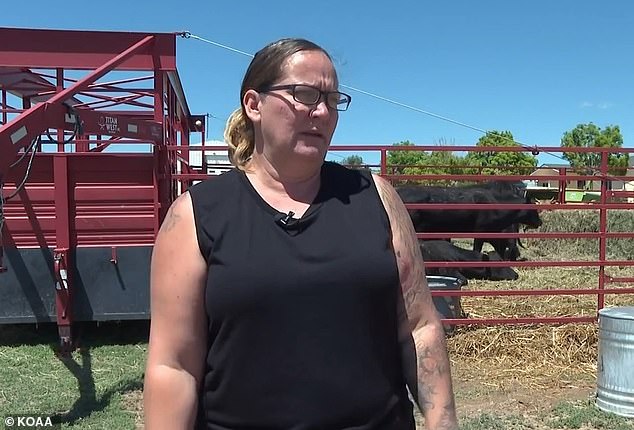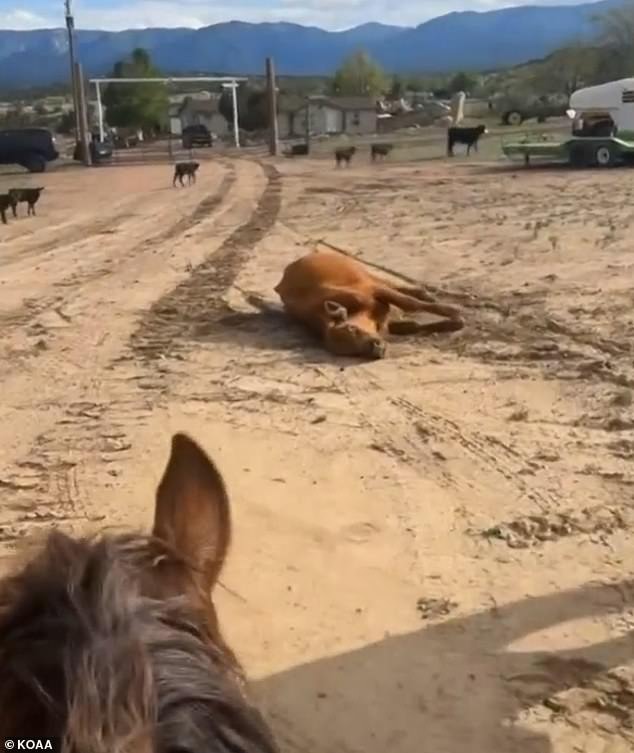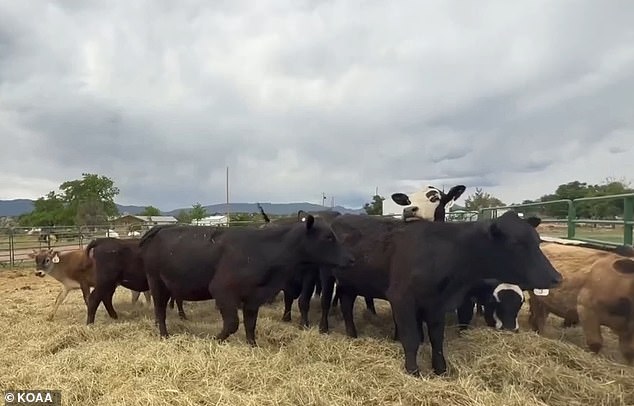A pair of Colorado ranchers were left distraught when they did a routine check on their cows, only to find three had dropped dead. By that afternoon, eleven more had died. The death toll hit fifteen by the next morning.
That was in early May. The grieving couple is still desperately looking for answers.
At first, Kerri Higgs and her husband thought that their cows may have been exposed to noxious weeds which are wild plants that can be harmful to crops and wildlife.
Kerri Higgs told Cowboy State Daily that while sad, it’s not uncommon to lose a cow or two that way: ‘We were going to deal with it, because that’s what happens sometimes.’
But after more than a dozen cows had passed on May 8, they knew there had to be a different answer.
The family noted that the majority of the losses had been first-time heifers; female cows who were experiencing their first pregnancy. The others were a steer and a yearling.
As the family watched their herd suffer, some died on their own and others were put out of their misery by Higgs’s husband. She noted that one in particular was having seizures and falling down as her eyes rolled to the back of her head.
‘It’s just the strangest thing. My husband has been a cowboy his entire life and he said he’s never seen anything like it,’ the Fremont County resident said.

A total of 15 cows at a Colorado ranch owned by Kerri Higgs and her husband had mysteriously died

Despite the loss, Kerri Higgs (pictured) and her family have decided to keep searching for answers and keep ranching

One of Higgs’ cows is seen lying on the ground after having a seizure
Following their herd’s death the couple turned to a local veterinarian and the county sheriff. At first, the veterinarian diagnosed brain swelling, pointing to sulfate poisoning from a nearby oil well. But as of May 22, tests of the water troughs and rain puddles came back negative.
Higgs turned to the Colorado Energy and Carbon Management Commission (ECMC) because she noticed a stench coming from the oil pad. The ECMC sent drones over the property to check for gas leaks around the affected cows, but she has yet to see the results.
Higgs is also interested in sending the cows for necropsy to get an even more thorough evaluation on what may have happened.
Curiously enough, cows kept in another pasture miles away were completely unaffected, which leads Higgs to believe the cause was environmental.
‘Now we just need to know where it came from,’ she wrote on her GoFundMe page to raise money to cover the financial loss of so many cows dying in one day, ‘most likely the land that we have leased.’

Higgs is interested in sending the cows for necropsy to get an even more thorough evaluation on what may have happened
Not only did their deaths cause heartache, but the family estimates an immediate loss of $50,000 to $70,000, not including vet bills they’ve already had to pay.
Higgs said they’d expected to have those cows for up to 12 years each. ‘In my opinion, we’re out a quarter-million dollars because of all the calves we’re never going to have from them,’ she said. To top it off, 13 of the remaining 15 cows lost their mothers to sudden deaths.
Despite the loss, Higgs and her family have decided to keep searching for answers and keep ranching.
DailyMail.com reached out to Higgs for comment.












